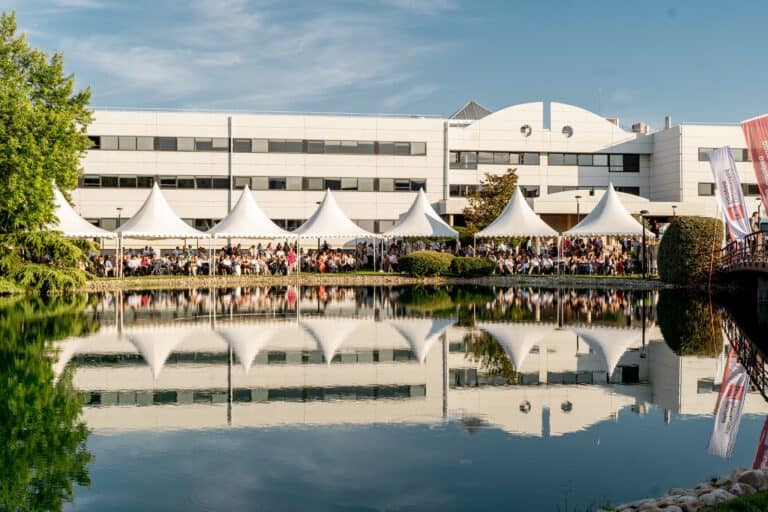Have you ever thought of studying without necessarily getting a diploma? Or would you like to follow a specific course without bearing the time and financial burden of an entire degree? That is possible with non-degree programmes. This type of programme is growing rapidly thanks to the technology and the education providers that want to offer lifelong learning opportunities.
In this article, EDUopinions introduces you to the non-degree programmes and compares them to the traditional degrees.
What Do non-degree programmes Mean?

“Non-degree programmes” typically refers to academic programmes in which students are not following classes to earn a degree. People who decide to follow non-degree programmes usually do it out of personal or professional interests next to a degree programme or a job. The classes that they follow enable them to acquire more knowledge and skills in a specific area without bearing the weight of all the requirements of an entire degree.
Almost every university offers non-degree programmes. However, as a non-degree student, you are still following classes that others might be following as a part of their degree requirements. Hence when seats are limited for a course, priority is given to degree students.
The appellation “non-degree programmes” is also commonly used to refer to MOOCs (Massive Open Online Courses) and Micromasters. These types of non-degree-programmes are most often designed by world-renowned universities such as MIT and Columbia University to be accessible by everyone online (no selection or application).
What are the differences between degree and non-degree programmes?
There are several differences to highlight. We have identified the three following groups, which we will compare two-by-two:
- Degree programmes
- Non-degrees programmes given at universities
- Other non-degree programmes (MOOCs, Microsmasters, etc)

Degree and non-degree programmes at university
The most obvious difference is that degree students study for several years and receive a diploma (bachelor, master, PhD, etc) whereas the others don’t. Nevertheless, non-degree students can receive a certificate to attest that they have followed a given course. As mentioned earlier, degree students tend to have priority for their course choices.
When it comes to prices, non-degree students pay a fraction of the fee as they follow fewer class hours. This is why they usually pay per credit taken (even though they do not receive the credits as they are not completing a degree).
Degree and other non-degree programmes
This comparison is where we notice the most differences. Programmes such as MOOCs and Micromasters are followed online through recorded lectures. Therefore, students can follow the courses at their own pace and from anywhere in the world. This strongly contrasts with the (usually) class-based teaching at universities in which students must follow a stricter schedule. Yet, this enables them to have in-person interactions with peers, teachers and staff. However, as more and more things can be done online, we leave it up to you to determine whether this is a positive, neutral, or negative point.
Price-wise, online programmes are much cheaper than degrees. Everyone can follow MOOCs for free and can receive a certificate for a fee upon completion of the assignments (usually between 100 and 300 EUR); Micromaster costs between 300 and 4,000 EUR and can be used to have course reductions in future degree programmes.
Non-degree programmes, MOOCs, and the likes
The differences between non-degree programmes at universities and through MOOCs (and the likes) are similar to those described in the above paragraphs. These programmes enable students to focus on specific areas of knowledge. Additionally, MOOCs can include a more practical component leading to greater skills development.
Are non-degree programmes worth it?

The short answer is YES! You might wonder whether your future employers will value your non-degree experience. This, of course, is not an exact science but, according to a report published by Gallud a study from Gallup, Strada and Lumina, 60% of non-degree-certificate holders believe that it has added value to their professional profiles. Generally speaking, employers also like to see that you have gone the extra mile to learn about a specific topic. However, this is only the case when the non-degree programme comes to supplement a strong professional or academic background.
Nevertheless, the study also found that such certificates lead to better salaries for people without a college degree.
In conclusion
Non-degree programmes can be a very smart investment in your career. They also are an amazing opportunity to keep on going to school next to another academic programme, your career, or even during your retirement years! Check out our article on improving your skills with the MIT open courseware to get to know more about this topic.
Editor’s note: This article was first published on the 21st of July 2021. We’ve updated it for current readers.
Recent Posts

For professionals with a few years' experience already, an MBA can be a great way of boosting your career prospects. From changing jobs or industries ...

Studying abroad for a semester or a full year can be an incredibly enriching experience. You'll get to experience a new culture, meet new people, and ...

If you're thinking of studying a technical subject like engineering at university, it's crucial that you choose a university that has a rigorous ...







